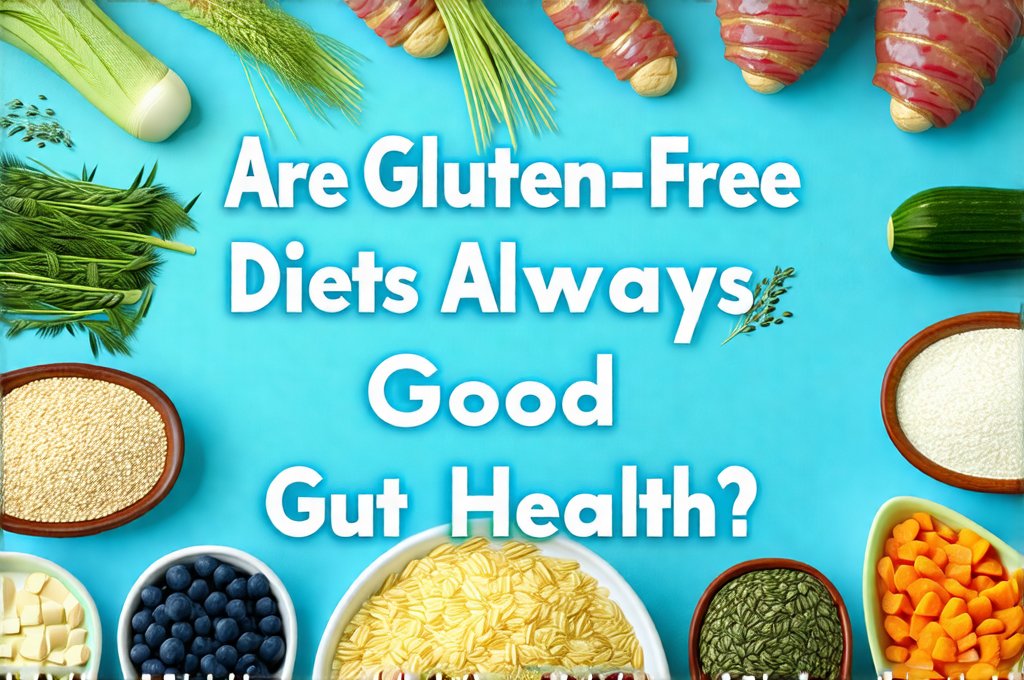Gluten-free diets have exploded in popularity over the last decade, transitioning from niche dietary needs for individuals with celiac disease or gluten sensitivity into mainstream lifestyle choices promoted for perceived health benefits ranging from weight loss to improved energy levels. This widespread adoption often overlooks a crucial nuance: removing gluten isn’t inherently healthy for everyone. In fact, for many people without diagnosed sensitivities, eliminating gluten can actually be detrimental to gut health, potentially reducing dietary fiber intake and fostering an unhealthy focus on restrictive eating patterns. The digestive system is a complex ecosystem, and tinkering with it – even with well-intentioned changes – requires understanding the potential consequences.
The human microbiome, comprised of trillions of bacteria residing in our intestines, plays a pivotal role in overall health, influencing everything from immunity to mental wellbeing. Gluten, as a component of wheat, barley, and rye, isn’t automatically harmful; it’s the reaction to gluten that dictates its impact. For those with celiac disease, an autoimmune disorder triggered by gluten ingestion, even trace amounts can cause significant damage to the small intestine. But for others, simply removing gluten without addressing underlying gut issues or ensuring adequate nutrient intake might create more problems than it solves. A truly healthy approach focuses on a diverse and balanced diet tailored to individual needs rather than blindly following dietary trends. Understanding are you eating the right amount for your gut is crucial in this process.
Understanding Gluten and its Impact on the Gut
Gluten is a family of proteins found in grains like wheat, barley, and rye. It’s what gives bread its elasticity and chewiness. In individuals with celiac disease, consuming gluten initiates an immune response that damages the villi – tiny finger-like projections lining the small intestine responsible for nutrient absorption. This damage leads to malabsorption, causing a wide range of symptoms like diarrhea, bloating, fatigue, and even anemia. Gluten sensitivity (non-celiac gluten sensitivity or NCGS) presents similar symptoms but without the autoimmune component or intestinal damage; its underlying mechanisms are still being researched, but it’s generally believed to involve increased gut permeability and inflammation.
However, for those without these conditions, gluten itself isn’t necessarily the enemy. The issue often lies with the modern Western diet, which frequently relies on highly processed gluten-containing foods that lack essential nutrients and fiber. Replacing these foods with equally processed gluten-free alternatives doesn’t automatically improve gut health; it simply swaps one problem for another. A diet rich in whole, unprocessed foods – whether they contain gluten or not – is far more beneficial. Furthermore, the fermentation process involved in sourdough breadmaking can alter gluten’s structure, making it easier to digest even for some individuals with mild sensitivities. Choosing top cooking oils that are safe for acid reflux diets is also important when preparing meals.
- Gluten’s role in celiac disease: Autoimmune response damaging villi
- NCGS: Similar symptoms but without intestinal damage; mechanisms still unclear
- Processed gluten-free foods often lack nutrients and fiber
- Sourdough fermentation can alter gluten structure, improving digestibility
The Gut Microbiome & Dietary Fiber
A healthy gut microbiome is characterized by diversity – a wide range of bacterial species coexisting in balance. This biodiversity supports optimal digestion, immune function, and even mental health. Gluten itself doesn’t inherently disrupt the microbiome, but restrictive diets that eliminate entire food groups can reduce the variety of fibers available to feed beneficial bacteria. Many gluten-containing grains are also sources of prebiotic fiber – compounds that nourish these good bacteria.
When we drastically cut out gluten without replacing those lost nutrients and fibers with other sources, it can create an imbalance in the gut microbiome, potentially leading to dysbiosis (an overgrowth of harmful bacteria). This can manifest as digestive issues, weakened immunity, and even mood changes. Moreover, many gluten-free products rely on refined starches and sugars to mimic the texture of gluten-containing foods, further exacerbating these imbalances. A more sustainable approach involves focusing on increasing overall fiber intake from diverse sources like fruits, vegetables, legumes, and naturally gluten-free grains such as quinoa and brown rice. It’s important to consider if are all plant based diets equal for gut health when making dietary changes.
The Role of Prebiotics & Probiotics
Prebiotics are essentially food for the probiotics – the beneficial bacteria in our gut. Sources include garlic, onions, leeks, asparagus, bananas, and oats (which contain soluble fiber). Incorporating prebiotic-rich foods into your diet can help nourish existing beneficial bacteria and promote their growth. Probiotics, on the other hand, introduce live microorganisms directly into the digestive system. They’re found in fermented foods like yogurt, kefir, sauerkraut, kimchi, and kombucha. While probiotic supplements are available, obtaining probiotics through food sources is often preferred as they come with a natural matrix of nutrients that support their survival and effectiveness.
- Prebiotics: Feed existing beneficial bacteria (garlic, onions, bananas)
- Probiotics: Introduce live microorganisms (yogurt, kefir, kimchi)
- Dietary diversity is key for a balanced microbiome
Reintroducing Gluten – A Careful Approach
For individuals who have experimented with gluten-free diets and are considering reintroduction, it’s crucial to do so gradually and mindfully. Abruptly reintroducing gluten can cause digestive upset. Start with small amounts of naturally gluten-containing foods like sourdough bread or whole wheat pasta and monitor your body’s response. Keep a food diary to track any symptoms that arise, such as bloating, gas, diarrhea, or fatigue. If you experience significant discomfort, consult with a healthcare professional. It’s also helpful to understand are fermented foods always good for digestion.
- Reintroduce slowly: Start with small amounts of naturally gluten-containing foods
- Monitor for symptoms: Bloating, gas, diarrhea, fatigue
- Consult a healthcare professional if needed
Gut Healing Protocols & Personalized Nutrition
Addressing gut health often requires more than just dietary changes; it may involve identifying and addressing underlying issues like leaky gut or imbalances in the microbiome. “Gut healing protocols” typically focus on removing inflammatory foods (which might include gluten for some), restoring digestive function, and repopulating the gut with beneficial bacteria. However, these protocols should be tailored to individual needs based on a thorough assessment by a qualified healthcare professional – such as a registered dietitian or functional medicine practitioner.
Personalized nutrition is key. There’s no one-size-fits-all approach to diet, even when it comes to gluten. What works for one person may not work for another. Factors like genetics, lifestyle, stress levels, and existing health conditions all play a role in determining dietary needs. Ultimately, the goal isn’t just to eliminate gluten or follow a restrictive diet; it’s to cultivate a healthy gut microbiome and optimize overall wellbeing through mindful eating and personalized nutrition strategies. If you experience issues at night, consider which tests are best for gut issues that only happen at night. Lastly, it’s worth considering are low-carb diets helpful or harmful for GERD? when planning your diet.


















